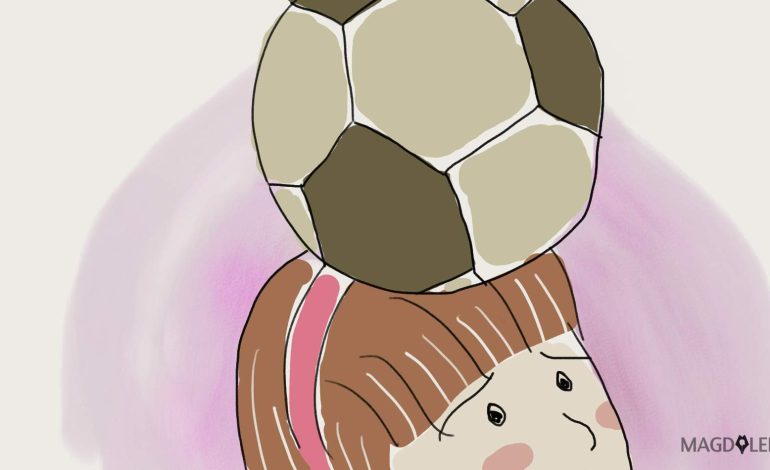Women Players Play Second Fiddle in Soccer Giant Spain

If you are a fan of football, you probably know that the Spain’s La Liga is among the best leagues in the world. Its two most famous players Cristiano Ronaldo and Lionel Messi represent various sports brands across the globe. According to Forbes, Ronaldo is the second richest athlete in the world, while Messi is the fourth.
On the other side of this glamorous world of soccer is women’s football, that enjoys not a fraction of the benefits and privileges of their male counterparts. Culturally, there is no restriction to women in sports, but in reality, women’s soccer is but an after thought. For one, it is next to impossible to earn a living as a professional footballer if you’re a woman. Most women soccer players in Spain have day jobs are in school. Unlike in the United States, where soccer is popular among women, here female soccer is not perceived as a professional competition. Many clubs pay their players below standard, some don’t even pay their women players. To play professionally means you sign a contract for a certain period of time that entitles you to an allowance, social security protection, and that complies with the minimum wage.
Vero Boquete, a Spanish footballer who plays for FFC Frankfurt and the Spanish national team, points at the wide disparity in the industry: “According to the Royal Football Spanish Federation (RFEF) data, only 31 female footballers in Spain have professional contracts, compared to 2,660 male players with contracts.”
The gender-based gap in pay is even wide. A 2013 data shows that the average pay for a male soccer player in the premiere league is 1.1 million euro (US$1.08 million) a year. In comparison, th average annual pay for a woman’s soccer player is 5,000 euro. The lowest salary of a professional male soccer player in the First Division is 120,000 euro per year. And women? Zero euro. Yes, some women do not get paid, although her club is in the First Division, because women’s soccer is deemed as amateur or non-professional sporting competition. Remember Ronaldo and Messi? They each make 18 million euro and 20 million euro a year respectively.
Ainhoa Tirapu is a goalkeeper for Athletic Bilbao Club. To earn her living, she works at international sporting goods store Decathlon in the first part of her day. In the afternoon, she practices with her team. Tirapu graduated with a degree in chemistry and has a master’s degree in environmental contagion and toxicology. She is also getting her PhD.
Many other women footballers have to juggle football with their studies as well. Natalia Pablos, who plays for Arsenal Ladies, had to take a break from playing for Spain’s national soccer team when she was getting her master’s degree. But her hard work and talent has enabled her to come back with a bang, helping the national team to qualify for the 2015 FIFA Women’s World Cup for the first time ever.
RFEF barely supports women’s national soccer team. Vero Boquete said she and other female soccer players receive an allowance of 30 euro a day from RFEF. This is merely a tenth of the meal allowance received by Spanish women’s basketball players in the national teams.
“We represent our country in the highest level of the sports, but we are not given the treatment we deserve,” Vero said.
Mari Mar Prieto, a former soccer player, blamed the culture of machismo in soccer behind the massive gender-based gap.
“Without machismo, female soccer would’ve been better in Spain. They keep saying women soccer doesn’t bring in the money, but why don’t they help and promote it then,” Prieto said.

This argument that women football doesn’t make money is the reason why Real Madrid President Florentino Perez does not form its own women’s soccer team, although other Spain’s major teams like Barcelona, Atletico Madrid, Sevilla, Valencia, Real Sociedad and Athletic Bilbao have them.
Spain has ratified the UN Convention Convention on the Elimination of All Forms of Discrimination against Women (CEDAW), but there is a clear discrimination when it comes to football. The convention mandates that there should be no discrimination against women in employement. Women have the rights to equal remuneration and equal treatment at work.
Spain, one of the major soccer countries, has been lagging behind Scandinavian countries, Germany and the United States when it comes to its treatment of female footballers. This can only improve if every one related, the players, the soccer federation and the society takes part in changing it.
*This article was translated from Indonesian. Please read the original here.
Wulan Kusuma Wardhani is a private employee, a sports (particularly soccer) afficionado and a feminist.





















